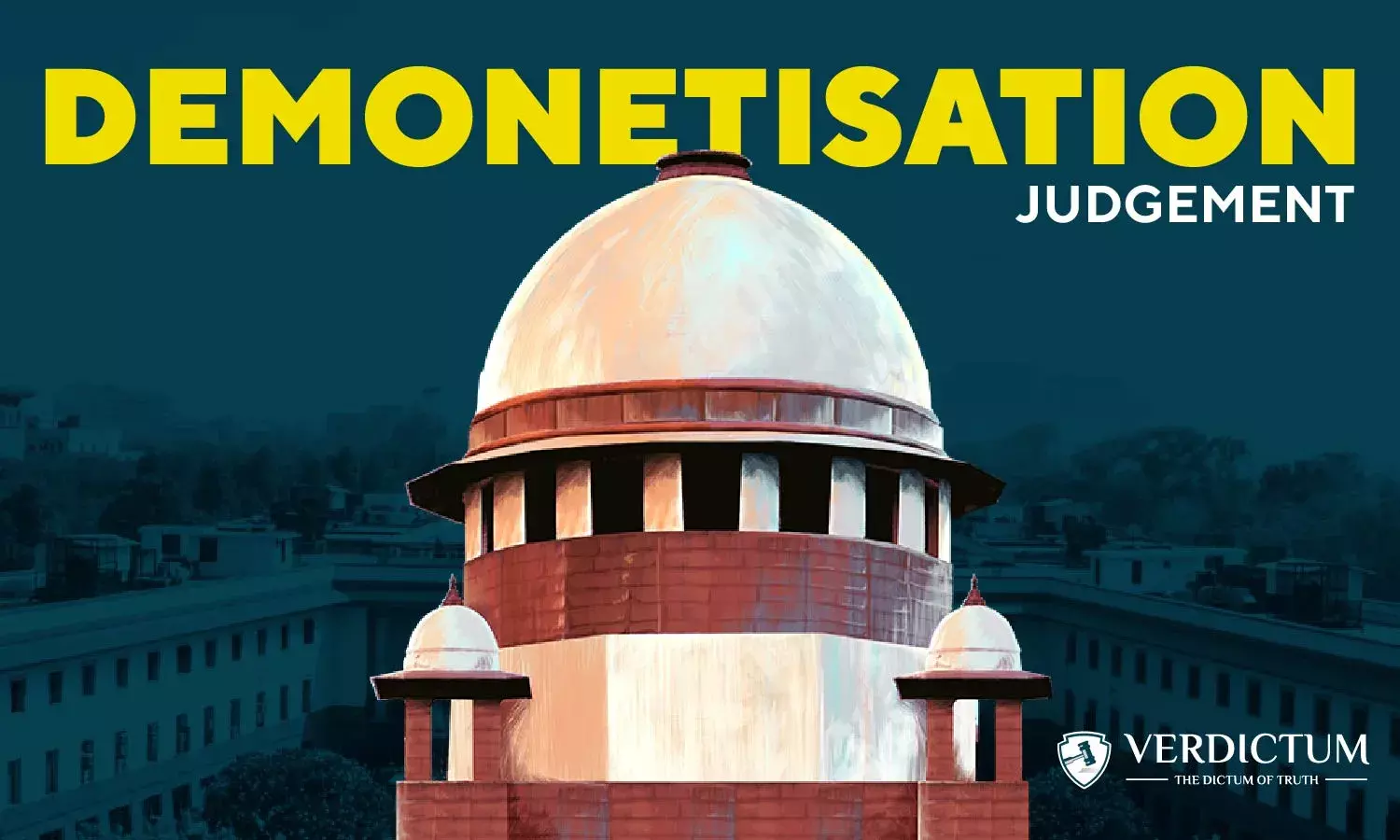Breaking: Constitution Bench Upholds Centre's 2016 Decision To Demonetize Currencies By A Majority Of 4:1

The Supreme Court has upheld the Center's 2016 decision to demonetize currency notes of Rs. 1,000 and Rs. 500 denominations by a majority of 4:1. Justice B V Nagarathna dissented.
A five-judge Constitution Bench headed by Justice S. Abdul Nazeer, and comprising Justice B R Gavai, Justice A S Bopanna, Justice V Ramasubramanian, and Justice B V Nagarathna pronounced its verdict today after reserving its verdict on December 7.
Justice B R Gavai pronounced the majority judgment and said that it has answered six questions and read out the same.
The Court held that a restrictive meaning cannot be given to Section 26(2) of the RBI Act. "In the present case, delegation is made to the central government, which is answerable to the Parliament and the Parliament is answerable to the citizens of the country", the Court said.
"The central government is required to take the action after the recommendation of the central board and therefore there is an inbuilt safeguard", Court said.
It said that the scope for judicial interference in economic matters is very limited. "Court cannot substitute its judgment for that of the legislature or the executive. It does not supplement or supplant the field of the experts with its own views", it said. It added that after examining the record, it has found that the decision-making process was not flawed merely because the procedure emanated from the central government.
The Court held that the purposes were proper and that there was a reasonable nexus with the object that the government sought to achieve by the action. The Court also held that the period given by the government was not unreasonable.
The Court held that it is not relevant to see if the object sought has been achieved or not so long as the object is for a proper purpose.
Justice B V Nagarathna dissented on the point of power exercised by the government under Section 26(2) of the RBI Act. "The Judgment proposed by Justice Gavai does not recognise the essential fact that the Act does not envisage initiation of demonetisation of banknotes by the Central Government" and that the demonetisation can only be initiated by the Central Board of the RBI as per the provision, Justice Nagarathna said.
Justice Nagarathna held that the impugned notification was unlawful and that the ordinance and the act that followed are also unlawful. Justice Nagarathna also held that status quo ante cannot be granted at this point in time.
Justice Nagarthna held that the object of the government may have been sound just and proper, but the procedure followed by it was not in accordance with law. Justice Nagarathna clarified that the declaration of law in her opinion will only apply prospectively. "It is beyond the pale of doubt that such a measure aimed at eliminating depraved practices was well-intentioned. The measure is reflective of concern for the economic health and security of the country and demonstrates foresight", Justice Nagarathna added.
The Apex Court had heard the submissions of Attorney General R Venkataramani for the Union of India, Senior Advocate Jaideep Gupta for the RBI and the petitioners' lawyers, including Senior Advocates P Chidambaram and Shyam Divan and reserved its verdict.
In its affidavit, the Centre had contended that demonetisation was a "well-considered" decision and part of a larger strategy to combat the menace of fake money, terror financing, black money and tax evasion.
The Court had on December 7 directed the Centre and the RBI to put on record the relevant records relating to the government's decision and reserved its verdict.

